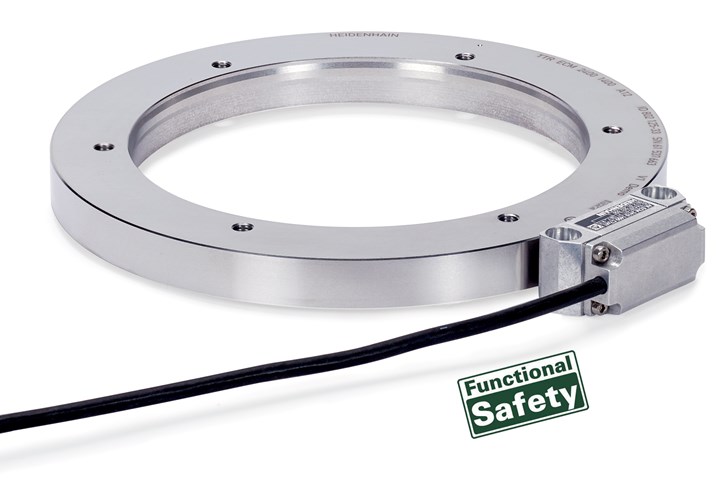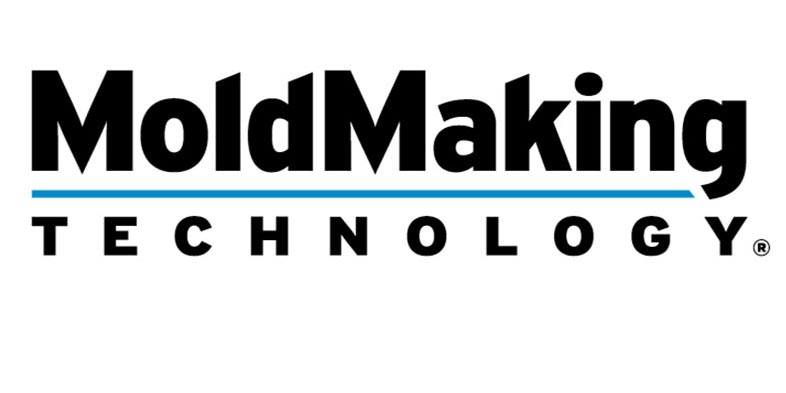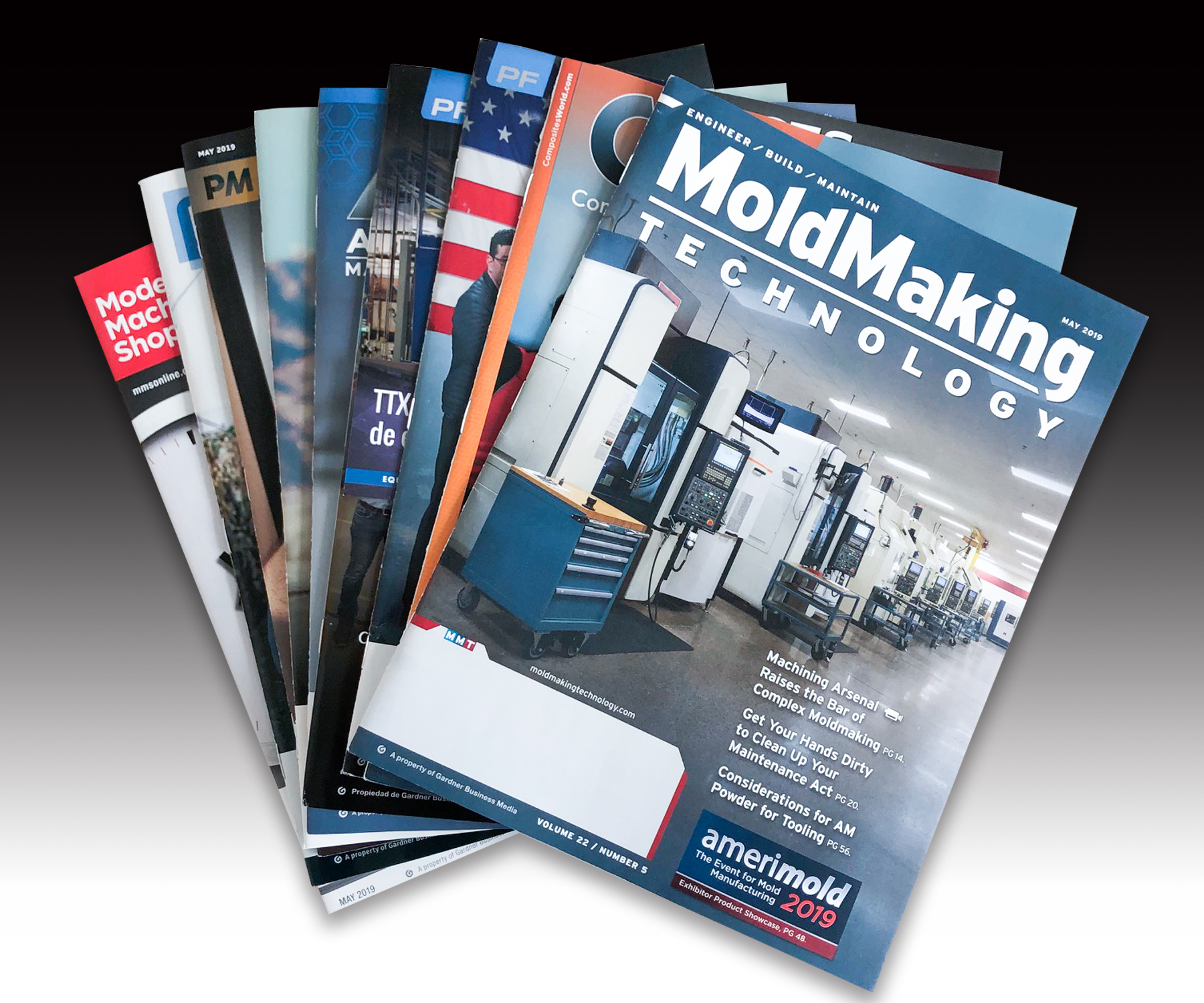Magnetic Ring Encoder Delivers Functional Safety for Machine Tool
Heidenhain’s contamination-resistant, absolute modular magnetic angle ECM 2400 is suitable for high rotational speeds, angular accelerations and limited space.
#regulations

Photo Credit: Heidenhain Corp.
Heidenhain’s contamination-resistant, absolute modular magnetic angle encoder, the ECM 2400, provides machine tool users functional safety (FS) for machine feedback. ECM 2400 supplements the Heidenhain’s portfolio of absolute angle encoders and is designed for machine tool applications that require a sturdy encoder with medium accuracy. The ECM 2400 is suitable for applications with high rotational speeds, angular accelerations and limited space due to the system’s low overall height.
Heidenhain says the ECM 2400 encoder works particularly well on B-axis lathes with motorized milling spindles, or on the A and C axes of milling machines where a large hollow shaft encoder is necessary. In general, it is suitable on all rotary axes that require the following attributes:
- Safety-oriented application (mechanical fault exclusion
- Sturdy angle encoder
- Large inside diameter
- Lower position accuracy than an optical measurement system
- Dynamic positioning accuracy (simultaneous multi-axis machining)
The encoders are available with EnDat 2.2 interface. In conjunction with a safe control, they can be used as single-encoder systems in applications with control category SIL 2 (as per EN 61508) and with Performance Level “d” (as per EN ISO 13849). The fault exclusion that is implemented in its design has been tested and is ensured under the specified operating conditions.
Existing non-FS interfaces for ECM 2400 encoders includes Fanuc05 and Mit03-4. All of these encoders have an IP67 rating.
RELATED CONTENT
-
A Different Approach to Mold Venting
Alternative venting valves can help overcome standard mold venting limitations and improve mold performance.
-
Advantages and Disadvantages of Copper and Graphite Electrodes
Both copper and graphite provide approximately the same end result, so it is important for a shop to consider the advantages and disadvantages of each material in order to discover what would work best in their shop floor environment.
-
Selecting a Carbide End Mill for Aluminum Applications
Specific geometries and characteristics of a carbide end mill are required for efficient machining of aluminum.





.jpg;maxWidth=970;quality=90)




